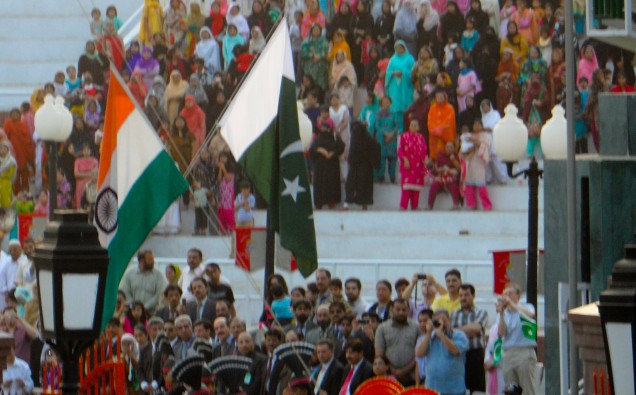
The world headlines may just be waning of repercussions of the U.S.-China trade wars but South Asia is already feeling the heat of self-inflicted losses from a trade spiral down between Pakistan and India.
As nuclear powers and the two largest South Asian economies, Pakistan and India have always set the tone for regional cooperation but their trade has dropped by fifty percent in recent months.
The annual two-way trade promises to be around $40 billion but has hovered around just a few billion dollars due to lingering disputes and geopolitical developments.
Recently, a spate of developments including ongoing Indian elections, security issues including a militant attack on Pulwama, Indian repression of people in the disputed Kashmir region and a dangerous military standoff are hurting the two-way commerce.
Prime Minister Narendra Modi has adopted a hostile approach to India’s relations with Pakistan, accusing Islamabad of supporting terror on its soil. Many analysts believing that his policy decisions seek to boost his reelection bid in the ongoing Indian national elections, but are harmful to the region in the long-term.
Pakistan has its own list of charges against India including sponsorship of militancy in Balochistan. Prime Minister Imran Khan, elected last summer, has attempted to reach out to New Delhi with a series of gestures but Modi has not reciprocated any of the moves.
The last couple of years have seen both trade tariffs and non-trade barriers further hinder prospects of commerce between the two countries that takes place conveniently through land routes like Wagah border crossing in Punjab.
Particularly, New Delhi’s decision to withdraw Most Favored Nation (MFN) status to Pakistan in February last, has scaled down exports to the neighbor.
India’s export of commodities to Pakistan over the last two months show a 50 percent decline, compared to figures in corresponding period of last year.
Pakistan’s exports to India have also shrunk in the face of India’s imposition of 200 percent duties on Pakistani imports.
In 2018, Indian imports to Pakistan were valued at US $1.92 billion while Pakistani exports to India stood at US $488 million, according to a Sputnik News report.
Pakistan has already stopped import of Indian fruit and vegetables including tomatoes, potatoes and banana that used to be a big source of boosting supplies in this part of the world, especial during time of jump in the prices due to poor harvest.
“There has been no import of vegetables from India over the last two years. This is the reason , you have hike in the prices of onion, garlic and lemons during the current Ramadan but have no option but to buy at higher prices,” says Saddam Athar Khan , a Lahore-based vegetable importer.
Pakistan’s business community believes that decrease in direct trade may give a boost to informal or indirect trade through countries like United Arab Emirates and Singapore – a loss to both economies and a drain on consumers.
India’s exports to Pakistan dropped to US $126.5 million in February from US $224.5 million a year earlier. Its imports declined to US $18.6 million from US $33.5 million in the same period.
Indian exports including cotton, organic chemicals, and plastics made up over 55 percent of shipment to Pakistan in a fiscal year before hostilities broke out.
Pakistani exports to India include edible fruit, nuts, cement, rock salt and other products.
Islamabad’s exports crashed by 56% and 45.5% respectively in February.
According to a recent World Bank Report, the trade between India and Pakistan was $2 billion whereas without trade barriers, this could reach $37 illion.
The report, “A Glass Half Full: The Promise of Regional Trade in South Asia” says that the lack of normal bilateral trade relations between the two countries affects the formation or deepening of regional value-chains in various high-value trading sectors.
While U.S.-China trade war has much wider ramifications, Pakistan-India tensions hold South Asia and Afghanistan far from realizing their full trade potential for a long time to come.


















[…] Pakistan-India trade drops amid ongoing tensions […]